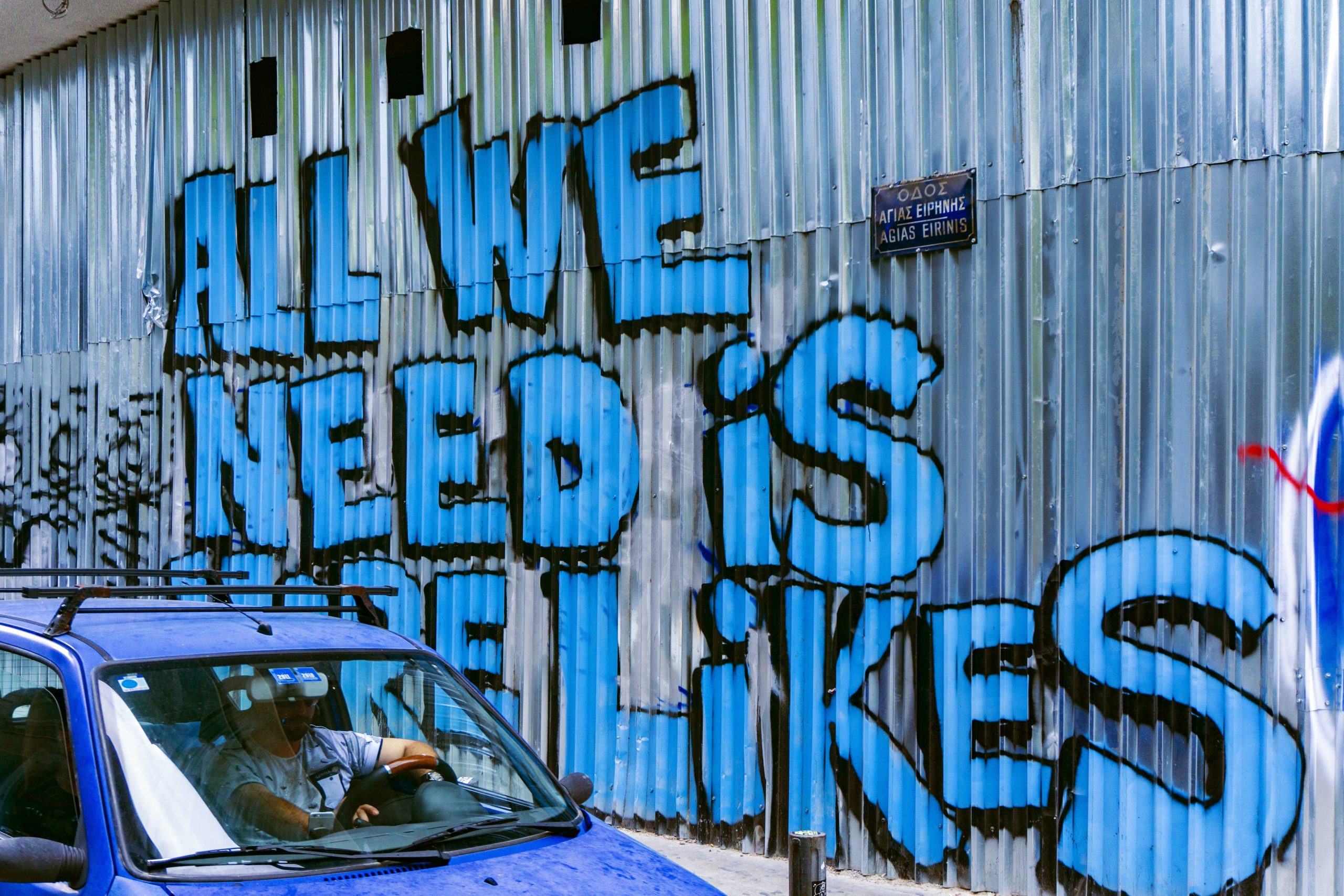
Do Your Employees and Consumers Share the Values of Your Company?

These days, it seems like every company has their values plastered on a wall plaque for all employees, vendors, and consumers to see. Within these values, companies typically proclaim their morals and principals by way of truthful, positive terminology—words such as “integrity”, “morality”, and “honesty” can commonly be found. While some companies talk about equality, operating for the greater good, or even improving the world around them through these values, people reading that plaque will not be satisfied by such broad terms and goals. Employees and customers need to know that a relationship with your company is simply the right move.
It can be tough—many companies try to avoid political issues to maintain their core values. It’s in their best interest to stay “safe” as to not appear one-sided. Once any issue, no matter how basic, becomes politicized, it is then considered a “political issue”. If a company has some employees whose loved ones would be affected by deportation, for example, they still may stay silent since it is such a sensitive issue.
Can a company really claim they are environmentally friendly if their products are packaged in non-recyclable plastics? Do they exhibit good character if they have a large carbon footprint? Actions speak louder than words. If your company’s actions do not exhibit the same values as your company’s words, it will be tough to justify. You don’t want to be forced to take a stand on an issue where you seem two-faced.
Taking sides is risky, no matter how ethically “good” or “bad” the issue may seem. We made a decision to publicly support such groups whose intentions were considered to hurt the economy. These non-profit conservation groups included The League to Save Lake Tahoe, an anti-water pollution group, The Surfrider Foundation, who cleaned debris from oceanic waterfronts, and the Mono Lake Committee, who supported Mono Lake and Mono Basin’s restoration. Their mission meant a decrease in the greater LA Metro area’s water consumption.
The above issues were “political issues”, and we were told not to take a stance one way or another, no matter how unethical we thought either side was. During the AIDS epidemic of the early 90s, we publicly supported the LGBT community. This time, too, we were warned not to choose sides.
Our risk paid off. History wound up being on our side, but these groups also became promoters of our brand, not to mention devoted customers. Of course, with such a risk, we suffered some backlash. However, over time, the “opponents” on these issues eventually changed their views as they became more knowledgeable. Even if there were some people who didn’t share our views on these marginalized issues, any new product needs customers. Those who stood by our “political views” formed the foundation of our consumer base. They saw us as early supporters.
At the end of the day, as a new business, we couldn’t afford to play it safe. If your company doesn’t speak up about issues concerning race, sexuality, or anything that makes someone marginalized, are you sticking to your core values? Could you confidently say that this is good business? Think about your company’s values. Do your actions reflect them? Etching them on a plaque will not help potential vendors, employees, and consumers understand your true mission, but your actions will. They will want to know whether or not they share your values.
Now is a better time than ever to take a stand on issues that are important, not only to your consumer base, but also to your employees. Why risk losing them, and why risk losing business? Keeping silent will not give you an edge in competition. Taking a risk and taking a stand by addressing “political issues” will show customers and employees that your company truly exhibits its values. What are you waiting for?
For more, read on: http://csnetworkadvis.staging.wpengine.com/advisor/michael-houlihan-and-bonnie-harvey/
Preserve Founders Legacy through Story Performed by Actors with Sound Effects and Music
DOES YOUR HISTORY, FOUNDING SPIRIT, & GUIDING PRINCIPLES GET LOST OVER TIME?
Does your growth result in specialization, turf battles, corporate malaise, costly employee turnover, and lack of engagement and loss of the big picture?
"Any company that works intentionally on their culture will like this product for on-boarding."
-Bill Higgs, Host, Culture Code Champions Podcast
"TRANSFORMATIONAL ! Tremendous potential for CEO's to tell their story in a new way!"
-Robert Reiss, Forbes Magazine
After building & selling the famous Barefoot Wine Brand and writing the NYT's Bestseller, The Barefoot Spirit, used in 60 schools of entrepreneurship, and after a decade of being trusted advisors to startups, buildups, and buildouts, Michael Houlihan & Bonnie Harvey have developed Business Audio Theatre. As workplace culture experts, they believe the best way to increase engagement and reduce turnover is through story. They believe the best way to convey business story is through audio theatre provided to new employees on day one. Identification with the founders, their story, and their principles is the basis for identification. Identification is the basis for engagement. Engagement is the basis for longevity. Find out more!
Watch C-Suite TV Interview with Taryn Winter Brill:
Listen to The Barefoot Spirit from the C-Suite Library
Call: 707-484-1600
EMAIL: Sales@TheBarefootSpirit.com
Michael & Bonnie in Action:
1.5 minute: https://barefootspirit.wistia.com/medias/svuthvx4uy
2.5 minute: https://barefootspirit.wistia.com/medias/q1t21okz9f
3 minute: https://barefootspirit.wistia.com/medias/8y5btoyfrw
10 minute: https://barefootspirit.wistia.com/medias/8crj4p1hg9
|Welcome to Business Audio Theatre the Most Effective Onboarding Tool to Reduce Turnover and Increase Engagement
Preserve Founders Legacy through Story Performed by Actors with Sound Effects and Music
DOES YOUR HISTORY, FOUNDING SPIRIT, & GUIDING PRINCIPLES GET LOST OVER TIME?
Does your growth result in specialization, turf battles, corporate malaise, costly employee turnover, and lack of engagement and loss of the big picture?
"Any company that works intentionally on their culture will like this product for on-boarding."
-Bill Higgs, Host, Culture Code Champions Podcast
"TRANSFORMATIONAL ! Tremendous potential for CEO's to tell their story in a new way!"
-Robert Reiss, Forbes Magazine
After building & selling the famous Barefoot Wine Brand and writing the NYT's Bestseller, The Barefoot Spirit, used in 60 schools of entrepreneurship, and after a decade of being trusted advisors to startups, buildups, and buildouts, Michael Houlihan & Bonnie Harvey have developed Business Audio Theatre. As workplace culture experts, they believe the best way to increase engagement and reduce turnover is through story. They believe the best way to convey business story is through audio theatre provided to new employees on day one. Identification with the founders, their story, and their principles is the basis for identification. Identification is the basis for engagement. Engagement is the basis for longevity. Find out more!
Watch C-Suite TV Interview with Taryn Winter Brill:
Listen to The Barefoot Spirit from the C-Suite Library
Call: 707-484-1600
EMAIL: Sales@TheBarefootSpirit.com
Michael & Bonnie in Action:
1.5 minute: https://barefootspirit.wistia.com/medias/svuthvx4uy
2.5 minute: https://barefootspirit.wistia.com/medias/q1t21okz9f
3 minute: https://barefootspirit.wistia.com/medias/8y5btoyfrw
10 minute: https://barefootspirit.wistia.com/medias/8crj4p1hg9
|Welcome to Business Audio Theatre the Most Effective Onboarding Tool to Reduce Turnover and Increase Engagement
Preserve Founders Legacy through Story Performed by Actors with Sound Effects and Music
DOES YOUR HISTORY, FOUNDING SPIRIT, & GUIDING PRINCIPLES GET LOST OVER TIME?
Does your growth result in specialization, turf battles, corporate malaise, costly employee turnover, and lack of engagement and loss of the big picture?
"Any company that works intentionally on their culture will like this product for on-boarding."
-Bill Higgs, Host, Culture Code Champions Podcast
"TRANSFORMATIONAL ! Tremendous potential for CEO's to tell their story in a new way!"
-Robert Reiss, Forbes Magazine
After building & selling the famous Barefoot Wine Brand and writing the NYT's Bestseller, The Barefoot Spirit, used in 60 schools of entrepreneurship, and after a decade of being trusted advisors to startups, buildups, and buildouts, Michael Houlihan & Bonnie Harvey have developed Business Audio Theatre. As workplace culture experts, they believe the best way to increase engagement and reduce turnover is through story. They believe the best way to convey business story is through audio theatre provided to new employees on day one. Identification with the founders, their story, and their principles is the basis for identification. Identification is the basis for engagement. Engagement is the basis for longevity. Find out more!
Watch C-Suite TV Interview with Taryn Winter Brill:
Listen to The Barefoot Spirit from the C-Suite Library
Call: 707-484-1600
EMAIL: Sales@TheBarefootSpirit.com
Michael & Bonnie in Action:
1.5 minute: https://barefootspirit.wistia.com/medias/svuthvx4uy
2.5 minute: https://barefootspirit.wistia.com/medias/q1t21okz9f
3 minute: https://barefootspirit.wistia.com/medias/8y5btoyfrw
10 minute: https://barefootspirit.wistia.com/medias/8crj4p1hg9
- Tell Your Story With an Experienced and Award-Winning Team - December 10, 2020
- The Romance of the Wine Business – Not! - November 19, 2020
- Do a Re-Take on Your Miss-Take - October 23, 2020






